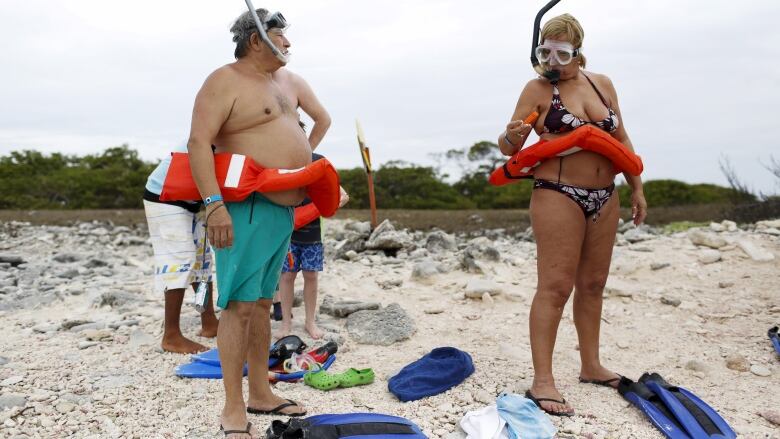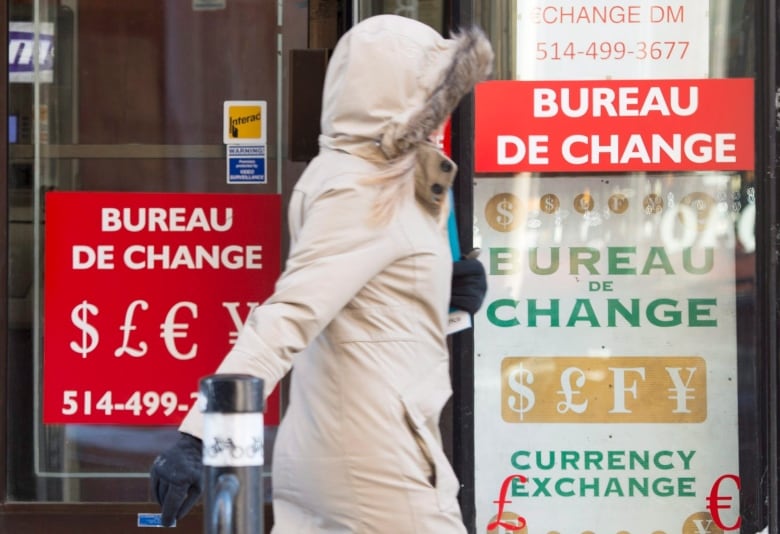What's driving Canadian winter travel trends? Hint, it's not the Zika virus
Travellers are asking questions, but not many are cancelling plans to visit Zika-hit countries

The panic around the Zika virus hit a new peak this week, with the World Health Organization declaring it was "spreading explosively."
But while alarming headlines may givewould-be travellers pause, they do not appear to be changing many plans.
"It's still pretty early to tell, but so far not," said Douglas Quinby,from the New York-basedtravel market research companyPhocuswright.
What's really affecting Canadian travellers? The weak Canadian dollar.
- LIVE CHAT CBC Forum:How do we stop the spread of the Zika virus?
- 4 confirmed Zika cases among Canadian travellers
- Canadian-U.S. Zikavaccine could be ready by year's end
- What Canadian travellers need to know about the Zika virus
- Canadian dollar moves above 71 cents as oil recovers
Warm cities in the U.S. like Miami, Fort Lauderdale, Fla., Phoenix and Las Vegas have been top destinations for Canadians for years.
But with thedollarstuckaround70 cents US(afterrecently droppingto the lowest it's been since 2003), Canadians are re-thinking their usual winter plans.
"That's pretty much killing travel to the U.S.," said Kevin Smith, who teaches atHumberCollege's tourism management program.
Instead, Canadians are travelling to the Caribbean. And even though many bookedthese vacations before news of the Zika virus broke, they're not cancelling in droves, travel agents say.
Questions, not cancellations
The risk of contracting the mosquito-borneZika virusis low, most medical specialists say. But the potential cost could be devastating.
For example, pregnant women who contract it could give birth to babies with microcephaly, which results in babies being born with unusually small heads.
It's estimated that about one in four or five people who are bitten by a Zika-carrying mosquito contract the disease.
"And up to 80 per cent of people exposed to Zika have either a very mild illness or no symptoms at all," said Dr. Sumon Chakrabarti, an infectious disease specialist in Toronto.
It's even less likely the virus will spread in Canada because the mosquitoes thatcarry the disease do not live here, and human-to-human transmission is very rare. Still, the government advises pregnant women to postpone or cancel travel to countries with the virus.
- Zika virus cases brought back to Canada are few, health officials say
- 6 things to know about the growing Zika virusoutbreak
But even with the warnings, the travel industry hasn't seen much of a change in behaviour.
"People are just wanting to be more informed about it, but they're not backing away from going away, or cancelling," said Mary Jane Hiebert, manager of the Canada One Travel and the chair of the Association of Canadian Travel Agents.
She said she's had one cancellation in the past month from a woman who found out she was pregnant after booking her trip to the Caribbean.
Not popular destinations
Most travel companies and airlines are offering cancellation optionswhen it comes to Zika.
"We don't have any requests for cancellation, but at this point we are offering, for people who are sending the medical paper attesting they are pregnant, that they can change dates or the destination for their trip," said Debbie Cabana from Transat, a Montreal-based company that offers tour packages.
Not many Canadians tend to travel to countries like Brazil, which is bearing the brunt of the devastating outbreak.
"It's really concentrated in Central America and South America, which are not very big destinations for Canadians," said Quinby.
It's really not that big of a deal.- Douglas Quinby, travel market researcher
He said most Canadians travel to Mexico, the Dominican Republic, or Cuba.
"There's just no comparison when you look at the volumes going to Brazil or even Costa Rica, so it's really not that big of a deal."
Smithsaid only a niche group of Canadian winter travellers go off the beaten path to places like Guatemala, Costa Rica and other Central and South-American countries.
"For the mainstream, you know 90 per cent especially of winter travellers just going to the resort I don't think [the Zika outbreak] is going to make a heck of a lot of difference," he said.
What's more, he said, resorts tend to be very proactive in situations like this by spraying mosquito repellent and offering mosquito netting for beds.

Snowbirds flocking elsewhere
At the same time, manyolder Canadians the so-calledsnowbirds who spend months at a time in the U.S. inwinterappear to be choosing different, less expensivecountries this year.
"We have,in the last month, 10 new bookings that we wouldn't have had of people that might have gone south [to the U.S.] but are choosing not to because of the dollar," said Hiebert.
For those dedicated to their yearly migration, Cabana said more and more snowbirds are flocking to the Caribbean.
"Instead of Florida they will think about Mexico, the Dominican Republic for the whole winter," she said.
Hiebertnoticed that some people who would normally go to the U.S. all winter are instead booking a two-week vacation to the Caribbean.
For those who do travel to the U.S. which Hiebert noted many Canadians still do they're spending less.
"They're maybe not buying as many pairs of shoes, or they'regoing out to dinner less," said Hiebert.

Another trend keeping many Canadians from their usual winter escape is the fact that winterhas been milder than usual inparts of Canada.
"In travel, that's a pretty bad thing because people are not really just dying to get out of Canada," said Smith.
The balmy weather hasn't been good for ski resorts in eastern Canada, but you won't hear many people complaining about a little break from the regular months-long onslaught of snow and ice.
Still, Canadians love their all-inclusive resorts.
"These are always really, really the most popular and they're still really, really popular," said Cabana.












_(720p).jpg)


 OFFICIAL HD MUSIC VIDEO.jpg)
.jpg)



























































































